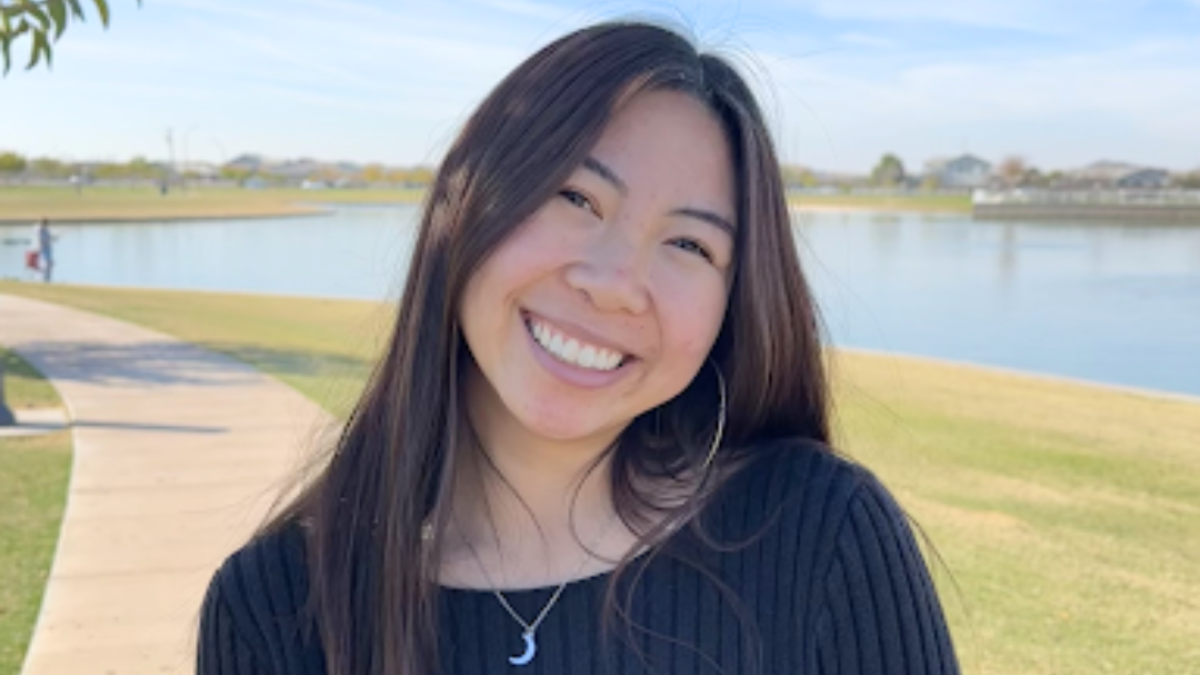Sanford School Dean’s Medalist passionate about serving families, community

Diana Nguyen. Courtesy photo
Editor’s note: This story is part of a series of profiles of notable spring 2024 graduates.
Helping families and children succeed in society takes knowledgeable and understanding professionals. Few students exemplify this mindset more than Diana Nguyen, a family and human development major and the spring 2024 Dean’s Medalist for the T. Denny Sanford School of Social and Family Dynamics.
Her heart for service shines in everything she chooses to pursue. Over the past four years, she has supported positive family outcomes through several research projects and internships, including the Summer Undergraduate Program for Engaging with Research (SUPER), during which she researched the effects of children’s home and family environments on their prosocial behavior and presented a poster.
Nguyen also participated in the Prosocial Behavior in Juveniles Lab, where she helped recruit, analyze data for and publish a study on prosocial behavior in adolescents, as well as the APPLE Partnership, where she aided in research to better understand factors that impact the quality of classroom relationships.
Currently, Nguyen is wrapping up her final semester with two positions: a classroom assistantship with the Child Development Laboratory, and an internship with Joseph Zito Elementary School, both of which involve working directly with children to foster their social, intellectual and physical development.
At the heart of it all is a desire to make her community a better place.
After graduation, Nguyen, who was born and raised in Phoenix, is looking to further her expertise and continue to help families thrive. As she wraps up her final classes, we caught up with Nguyen to learn more about her time at ASU and what she hopes to accomplish next.
Note: Answers may have been edited slightly or length or clarity.
Question: What was your “aha” moment when you realized you wanted to study the field you majored in?
Answer: I knew I always wanted to work with kids, so when I learned about the Family and Human Development program, I knew it would be a good fit.
Once I started taking courses with faculty, learning about the various facets of human development from coursework, and seeing the opportunities that the Sanford School offered, it confirmed that I made the right choice.
Q: Why did you choose ASU?
A: I chose ASU largely for the financial and academic opportunities that it offered. Since it is such a large institution, I have been able to really make the most of my time here. Also, being close to home was definitely a bonus.
I am also a proud Obama Scholar and recipient of the Fitch-Craig Scholarship, which I want to mention because of its impact on how I have been able to navigate the financial strains within higher education.
Q: What’s something you learned while at ASU — in the classroom or otherwise — that surprised you or changed your perspective?
A: I have learned a lot while working at the Child Development Lab. Getting that experience firsthand has really impacted how I apply what I learn in classes about appropriate practices. Each day is always exciting and surprising because the children I get to play and build relationships with always remind me to be joyful and have fun.
Q: Which professor taught you the most important lesson while at ASU?
A: I took ASL 101 with Professor Ronda Moriarty, which will always stick with me. She taught me how communication and connection go beyond words.
Q: What was your favorite spot on campus, whether for studying, meeting friends or just thinking about life?
A: My favorite spot on campus is definitely the third floor of the Student Pavilion. It is home to the Multicultural Communities of Excellence where there are a ton of resources, communal spaces, and students to connect and study alongside.
Q: What’s the best piece of advice you’d give to those still in school?
A: My biggest piece of advice is to get involved. The opportunities that different organizations offer give you the ability to explore different ideas, experience new things, and meet new people. These four years are so unique, so I am happy to have explored a lot of different avenues — from cultural clubs (and) research to Greek life. I can definitely say it makes all the difference.
Q: What are your plans after graduation?
A: My plans after graduation are to first travel and celebrate with friends. Then, I want to possibly continue my education in graduate school to further explore careers centered around working with children and families.
Q: If someone gave you $40 million to solve one problem on our planet, what would you tackle?
A: I would try to tackle homelessness because I see how it impacts my local community and would want the money to go back to the people who need it.
More Arts, humanities and education

Pen Project helps unlock writing talent for incarcerated writers
It’s a typical Monday afternoon and Lance Graham is on his way to the Arizona State Prison in Goodyear.It’s a familiar scene. Graham has been in prison before.“I feel comfortable in prison because of…

Phoenix civil rights activists highlighted in ASU professor’s latest book
As Phoenix began to grow following WWII, residents from other parts of the country moving to the area often brought with them Jim Crow practices. Racism in the Valley abounded, and one family at…

Happy mistake: Computer error brings ASU Online, on-campus students together to break new ground in research
Every Thursday, a large group of students gathers in the Teotihuacan Research Laboratory (TeoLab) in the basement of the School of Human Evolution and Social Change building on Arizona…

